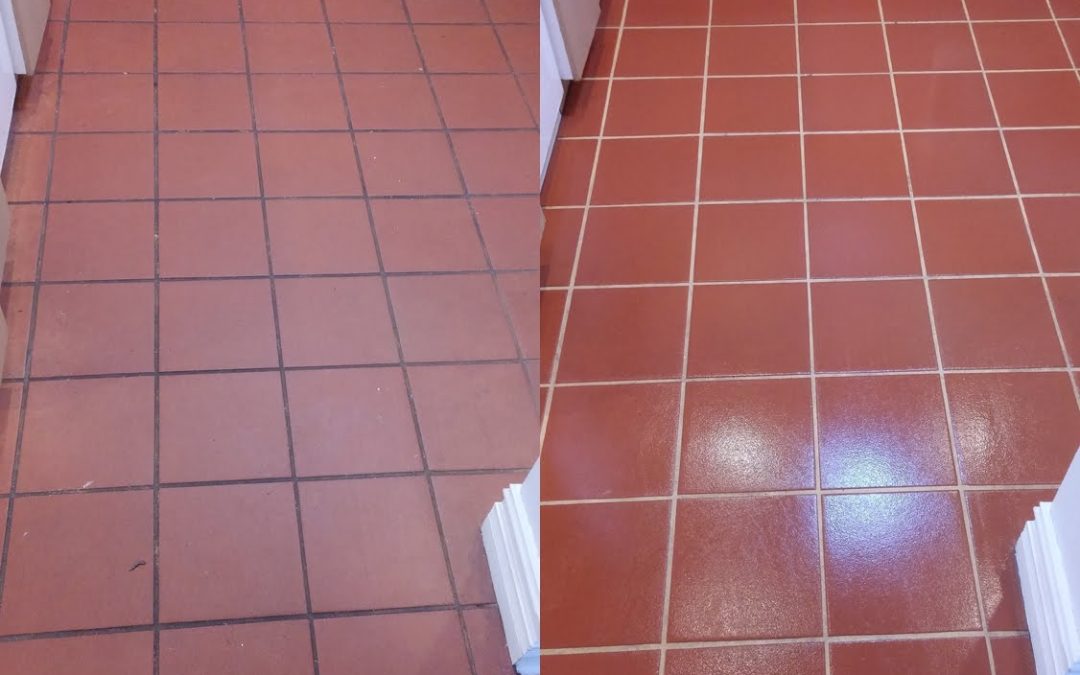Tiles come in a variety of colors, patterns, textures, materials, styles, and sizes. They may offer fresh vitality to an old space and define the architectural aspects of a room. Tile and grout sealing can assist in maintaining the attractiveness of your flooring for a longer period.
You may be asking if you need to seal your tile surfaces after installing new tiles on your worktops, walls, showers, or floors. It is critical to seal natural stone and tiles because sealer works as a barrier against future stains and dirt buildup.
Grout is often constructed of cement, which makes it porous. This is why it can easily absorb liquids. As a result, grout sealing is required for your tile surfaces. Furthermore, grout sealing is beneficial because it prevents mold and mildew from forming on your grout. You may use a grout sealer to strengthen your growth, making it more robust and slowing down any wear and tear.
What type of tile requires tile sealing?
- Natural ceramic tiles
- Natural porcelain tiles
- Sandstone
- Granite
- Concrete tiles
- Other natural stone tiles
What are the benefits of tile & grout sealing?
Tiles can have a significant impact on the look of your home’s spaces. Sealing your tiles and grout has several advantages that will make upkeep much easier.
| Tile Sealing | Grout Sealing |
|
|
|
|
|
|
|
|
|
|
Is it possible to seal old tile?
Rejuvenating your current surfaces is a more cost-effective option than replacing them. Sometimes all surfaces require a thorough cleaning, followed by a penetrating sealer to prevent debris from entering deeply. The key to thorough cleaning is dwell time – allowing the cleaner to do its work on the surface before wiping or scrubbing it away.
What will happen if the tile sealing procedure is ignored?
Any greasy or abrasive that spills on the tile or grout can harm the surface and infiltrate the pores, producing a permanent stain that is inaccessible by conventional cleaning procedures. Therefore we strongly recommend tile sealing your home or workplace floors to keep them looking and feeling new, guard against permanent discoloration, and avoid further unintentional damage. Your surfaces will last longer and be easier to maintain.
In addition to the decreased lifespan of the tile and grout, unsealed tiles and grout may pose a health risk. Following are some serious risks that might arise when you keep your flooring untreated and unmaintained.
- Chipping and Cracking of Tiled surfaces
- Growth of mold and Mildew
A few basic tile sealing steps to follow
- Prior to sealing, thoroughly clean the whole tiled area.
- Then the first layer of sealant should be applied (if required).
- Grout the tiles and let them cure properly ( have a look at the manufacturer’s instructions).
- Finally, apply another layer of sealant, making sure it is uniformly distributed, and allow it to dry.
Seek professional assistance with tile and grout sealing.
At dynamic tile and grout care, we optimize our services to fit your requirements, providing you with bespoke service and a satisfactory result. We employ cutting-edge technology that is specifically built for the purpose.
Our staff undergoes ongoing training and reskilling programs to guarantee that our client’s flooring always looks its best and that our client’s tiles and grouting live up to or surpass their specified life expectancy.
Let our tile & grout sealing team get the job done for you, Call Dynamic Tile and Grout Care on 1300 11 99 76 to request a FREE quote today!
Read More, Why a balcony leak should be repaired immediately

